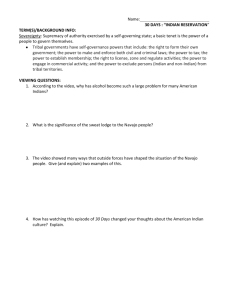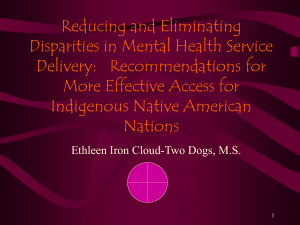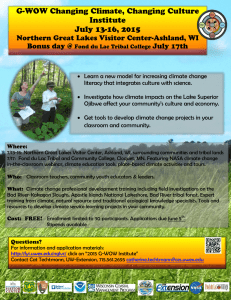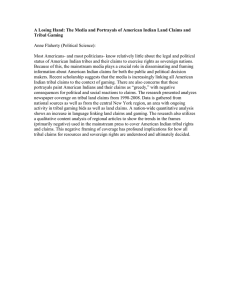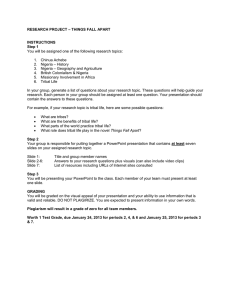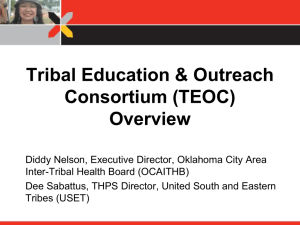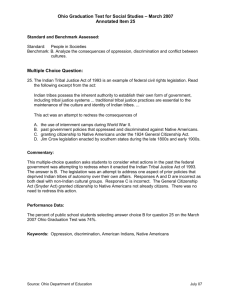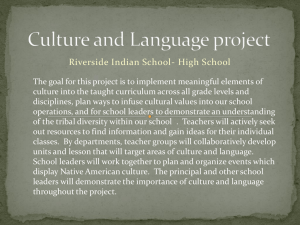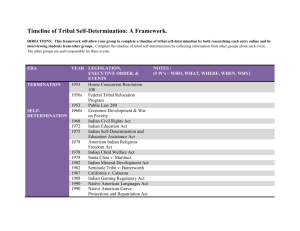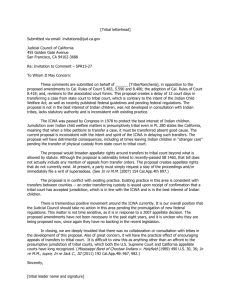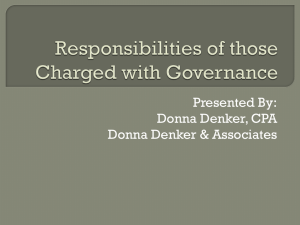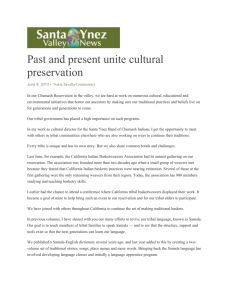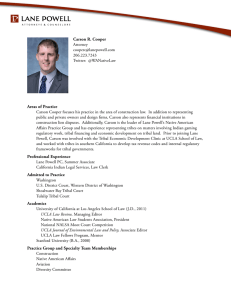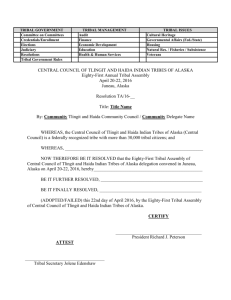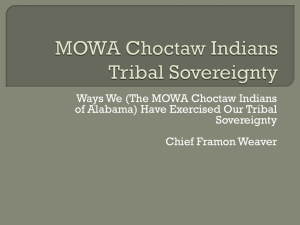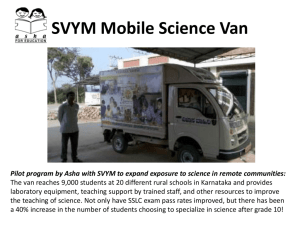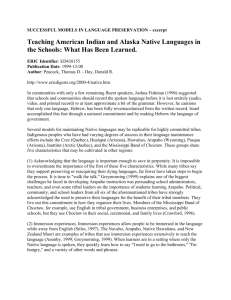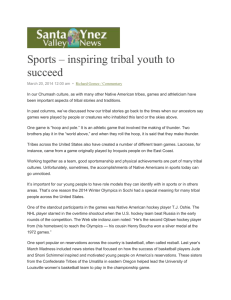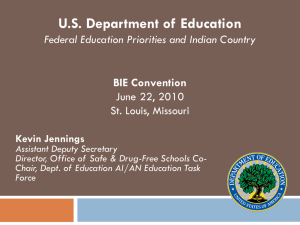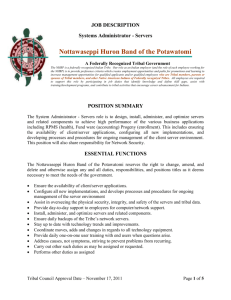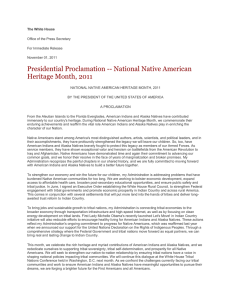Public Health Laws in Indian Country
advertisement
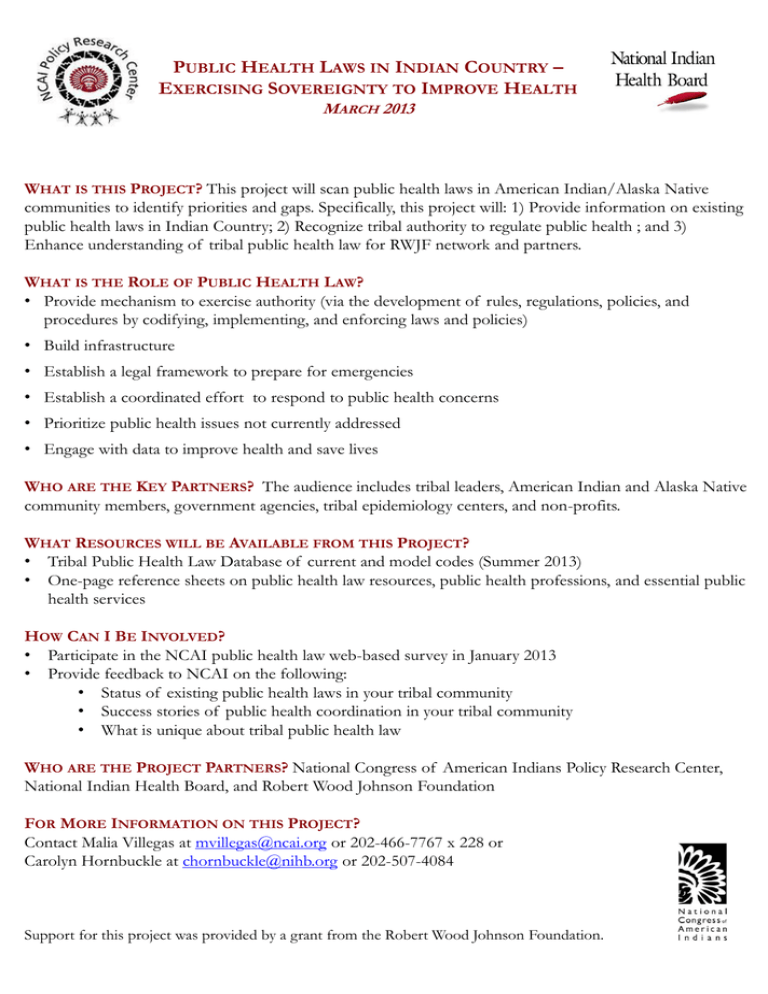
PUBLIC HEALTH LAWS IN INDIAN COUNTRY – EXERCISING SOVEREIGNTY TO IMPROVE HEALTH MARCH 2013 WHAT IS THIS PROJECT? This project will scan public health laws in American Indian/Alaska Native communities to identify priorities and gaps. Specifically, this project will: 1) Provide information on existing public health laws in Indian Country; 2) Recognize tribal authority to regulate public health ; and 3) Enhance understanding of tribal public health law for RWJF network and partners. WHAT IS THE ROLE OF PUBLIC HEALTH LAW? • Provide mechanism to exercise authority (via the development of rules, regulations, policies, and procedures by codifying, implementing, and enforcing laws and policies) • Build infrastructure • Establish a legal framework to prepare for emergencies • Establish a coordinated effort to respond to public health concerns • Prioritize public health issues not currently addressed • Engage with data to improve health and save lives WHO ARE THE KEY PARTNERS? The audience includes tribal leaders, American Indian and Alaska Native community members, government agencies, tribal epidemiology centers, and non-profits. WHAT RESOURCES WILL BE AVAILABLE FROM THIS PROJECT? • Tribal Public Health Law Database of current and model codes (Summer 2013) • One-page reference sheets on public health law resources, public health professions, and essential public health services HOW CAN I BE INVOLVED? • Participate in the NCAI public health law web-based survey in January 2013 • Provide feedback to NCAI on the following: • Status of existing public health laws in your tribal community • Success stories of public health coordination in your tribal community • What is unique about tribal public health law WHO ARE THE PROJECT PARTNERS? National Congress of American Indians Policy Research Center, National Indian Health Board, and Robert Wood Johnson Foundation FOR MORE INFORMATION ON THIS PROJECT? Contact Malia Villegas at mvillegas@ncai.org or 202-466-7767 x 228 or Carolyn Hornbuckle at chornbuckle@nihb.org or 202-507-4084 Support for this project was provided by a grant from the Robert Wood Johnson Foundation.
